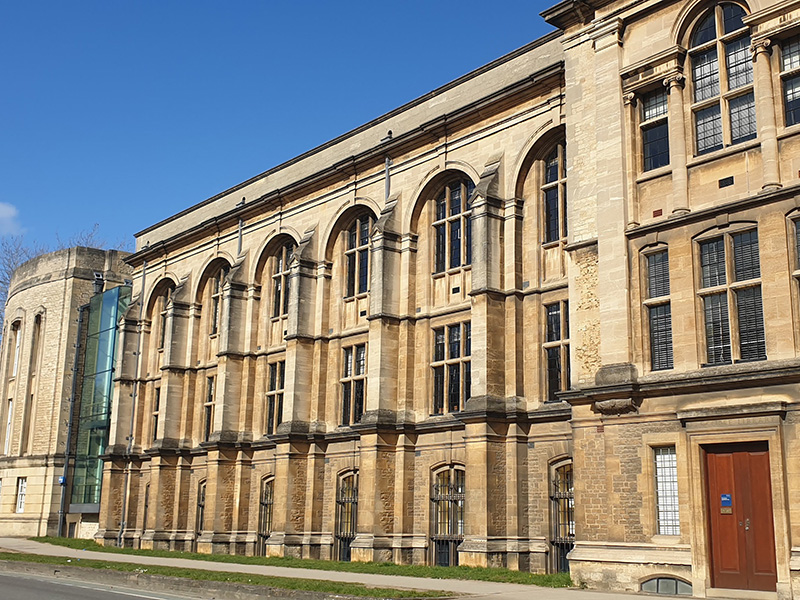The Reuben Foundation has today increased the places on its scholarship programme for Oxford University undergraduates and made a further donation for buildings at Oxford’s newest college, Reuben College, including a new Reuben Graduate Centre.
The donations were announced today as the Reuben family visited the University, taking a tour of the Reuben College grounds. It comes as the college welcomes its first intake of 136 graduate students across almost 70 degree courses this autumn.

First established in 2012 for undergraduate students from socio-economically disadvantaged backgrounds, the Reuben Scholarship Programme has supported hundreds of undergraduate Reuben Scholars to date, with a further 132 scholars commencing this academic year. As the endowment for the scholarship programme builds, there will be more than 400 Reuben Scholars on courses at Oxford by 2023-24. Between 70 and 80 new Reuben Scholars will be joining the programme each year in perpetuity, enabling generations of students to study at Oxford without financial concerns.
The foundation has also pledged a further £8 million for new and existing buildings at Reuben College, having previously gifted a landmark £80 million, including £71 million towards endowing the graduate college, in 2020.
The gift will be used in the refurbishment, fitting out and maintenance of the Worthington and Jackson Buildings and the Winchester Road Development, which will all form part of the site of Reuben College. The Reuben site on Winchester Road will consist of three Victorian villas (which the college will renovate and re-furbish), and a new building to be constructed at the back of the gardens, which will be named the ‘Reuben Graduate Centre.’
Reuben College aims to generate new insights into the biggest questions of our time by bringing academics together from traditionally different disciplines to work on challenging themes and share their knowledge with the college’s graduate students. A culture of innovation and enterprise and strong commitment to diversity, sustainability and public engagement are intended to cut across all inter-disciplinary activities. The college’s initial research themes include: Artificial Intelligence and Machine Learning, Cellular Life, Environmental Change, and Ethics and Values.
Professor Louise Richardson, Vice Chancellor of Oxford University, said: ‘The Reuben Foundation has been extraordinarily generous in supporting disadvantaged students and, more recently, in funding the creation of Oxford’s newest college. In a remarkable act of philanthropy, today they have increased their support for both student scholarships and the expansion of the Reuben College. Students and scholars across Oxford are in their debt.’
Professor Lionel Tarassenko, President of Reuben College said: ‘This latest gift demonstrates the extraordinary commitment of the Reuben Foundation to our college. It makes a significant contribution to the refurbishment of our heritage buildings, and enables us to expand the accommodation available to our students, including the provision of a social hub in the Reuben Graduate Centre.’
A spokesman for the Reuben Foundation said: ‘Alongside the academic excellence that Reuben College will exude, we are pleased to help enhance the experience offered to students by creating the Reuben Graduate Centre, which will be the social hub for students outside study hours, offering a Graduate Common Room, gym and cinema.’
The inaugural cohort of Reuben Graduate Scholars are also commencing their studies at Reuben College this academic year (2021–22), the college’s first year of operation. Half of the places have been awarded to postgraduate research students and the other half for postgraduate taught degrees. This will rise to 27 scholarships annually by the college’s fourth year (21 research degrees, 6 taught degrees). The Reuben Graduate Scholarship programme aims to attract the world’s most talented students of all backgrounds and knowledge disciplines, with many of them expected to form the next generation of outstanding Oxford University academics. The scholarships will support students to commence interdisciplinary studies at Oxford, and the first cohort includes international students and UK scholars from under-represented backgrounds who have participated in graduate access initiatives.